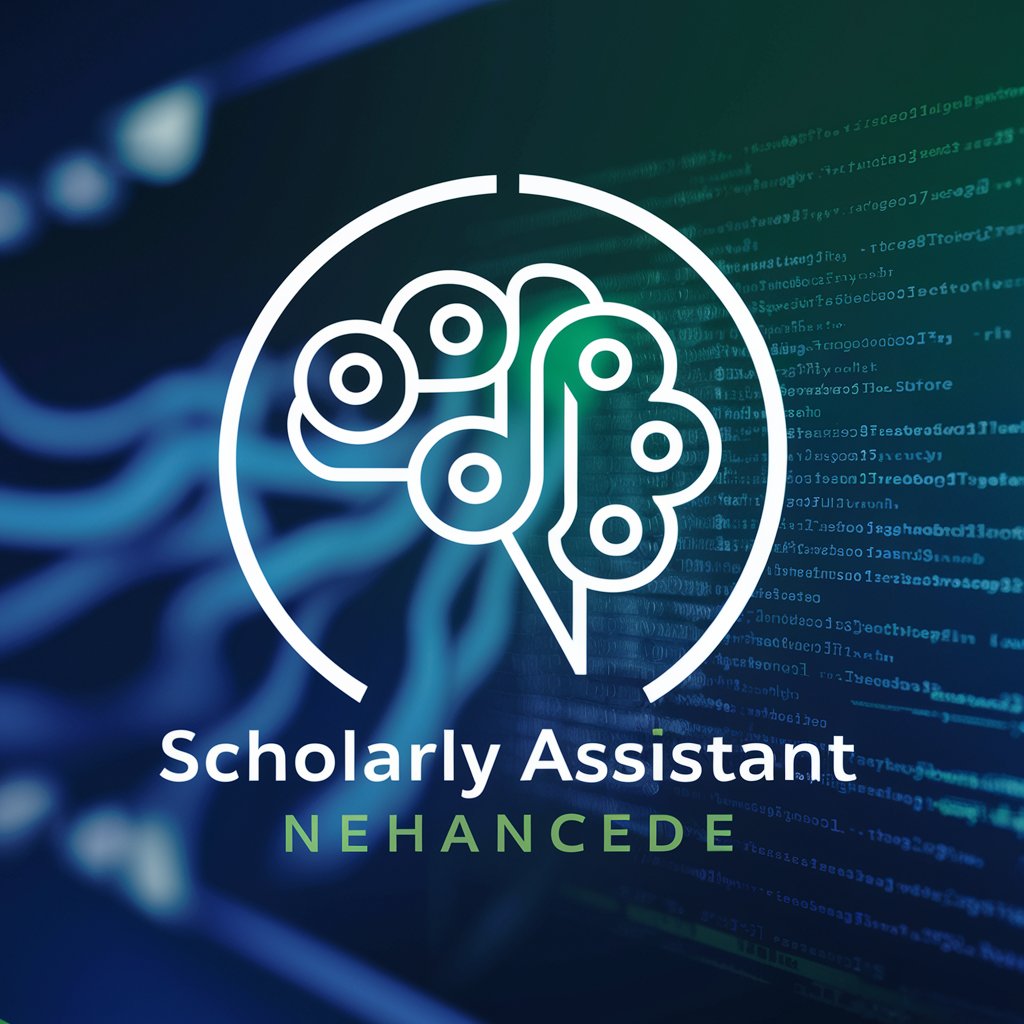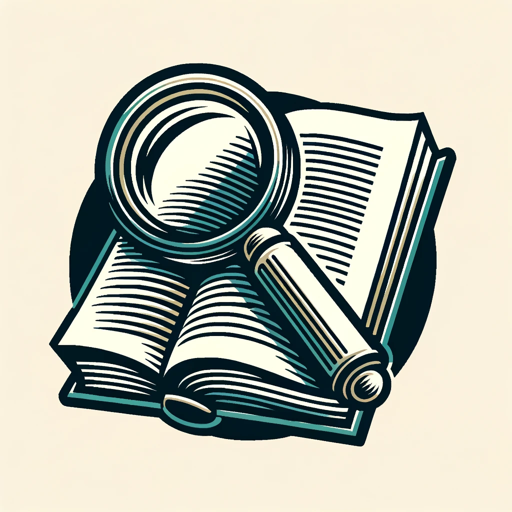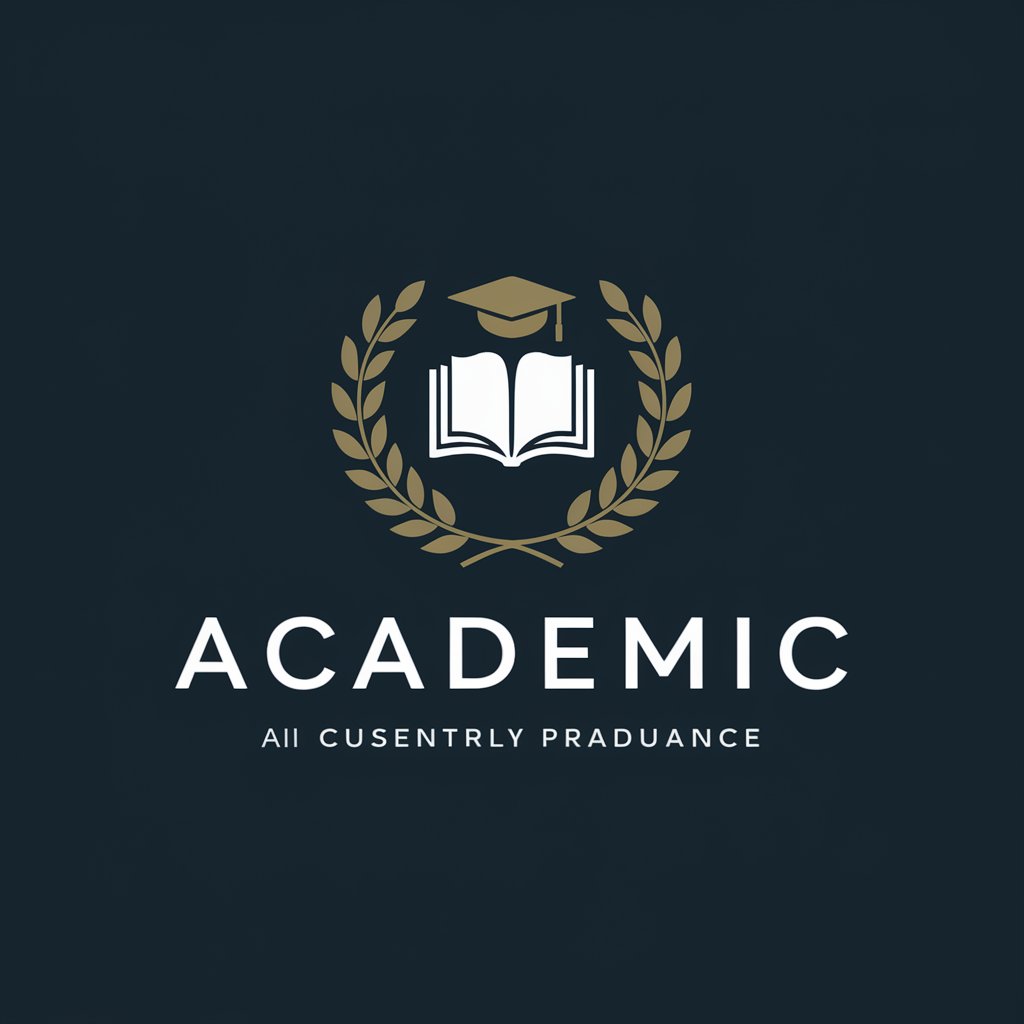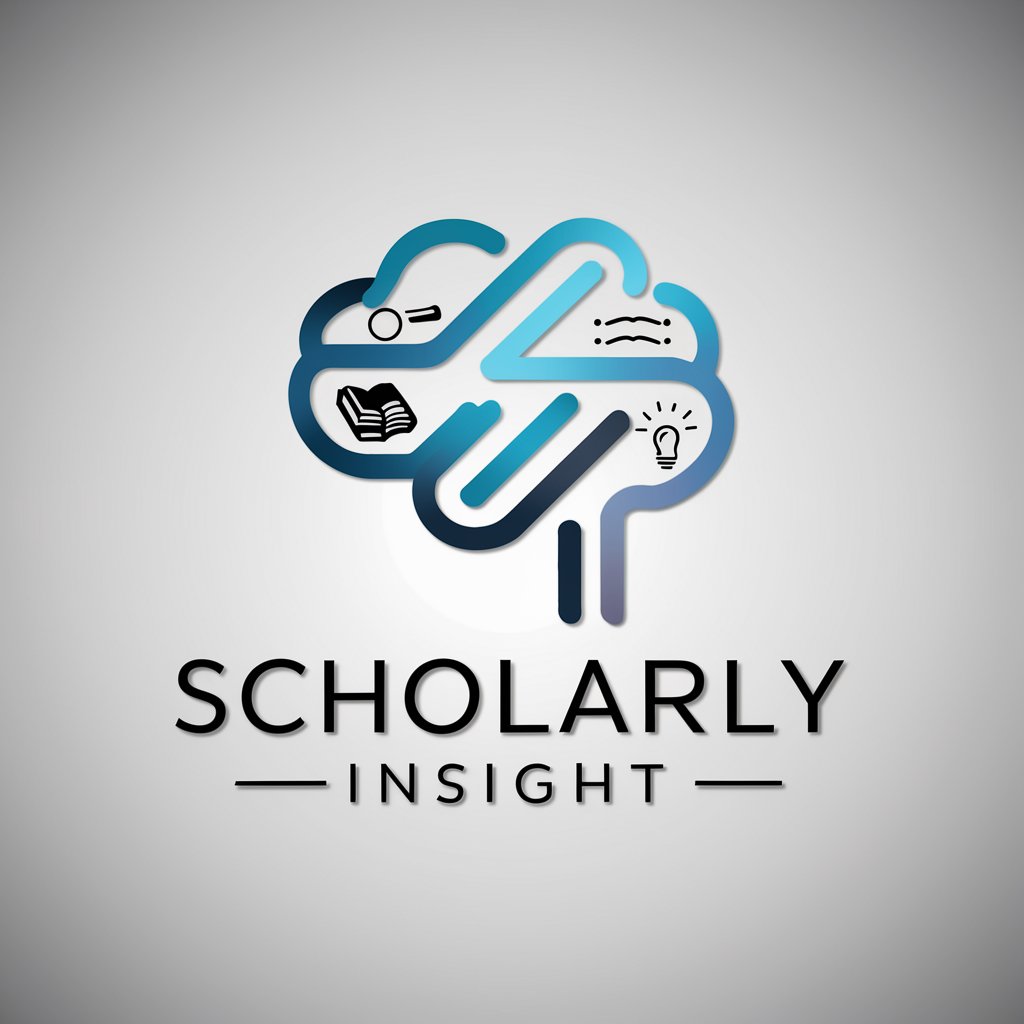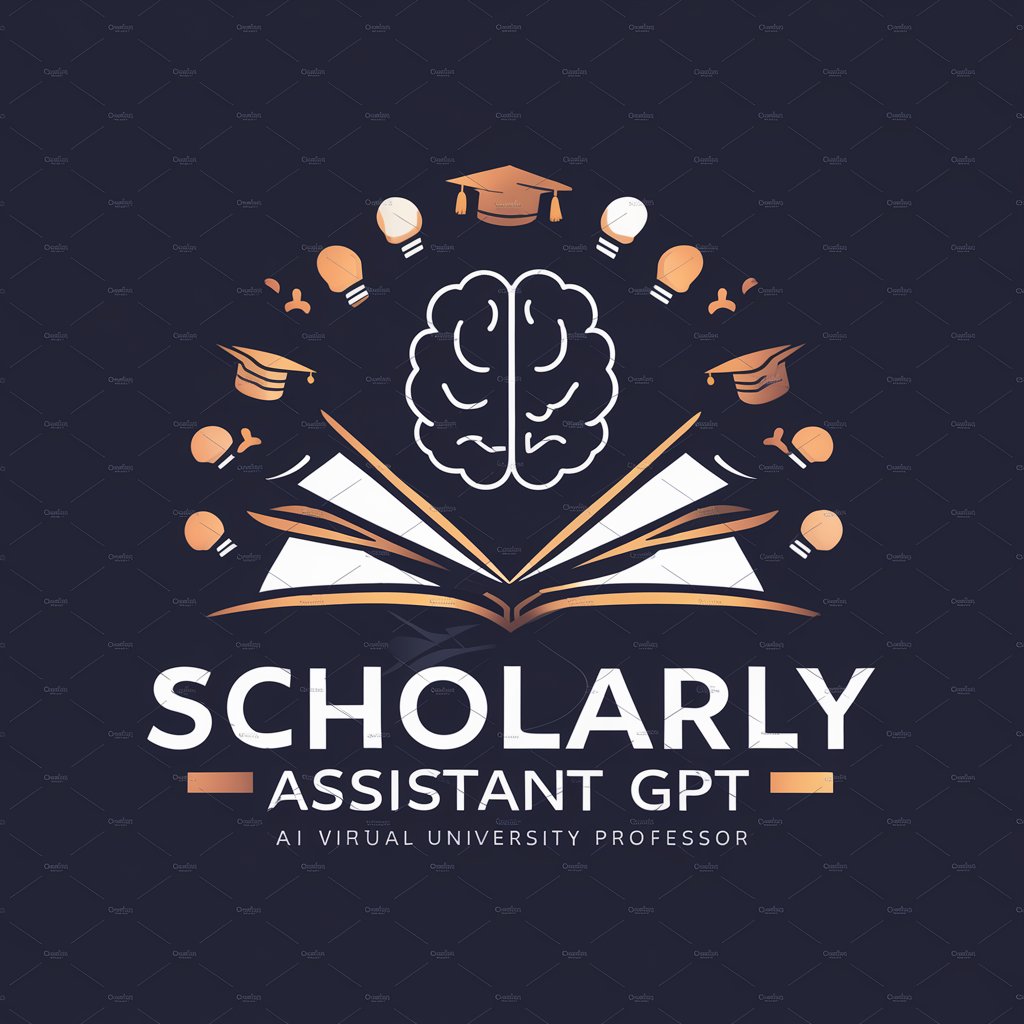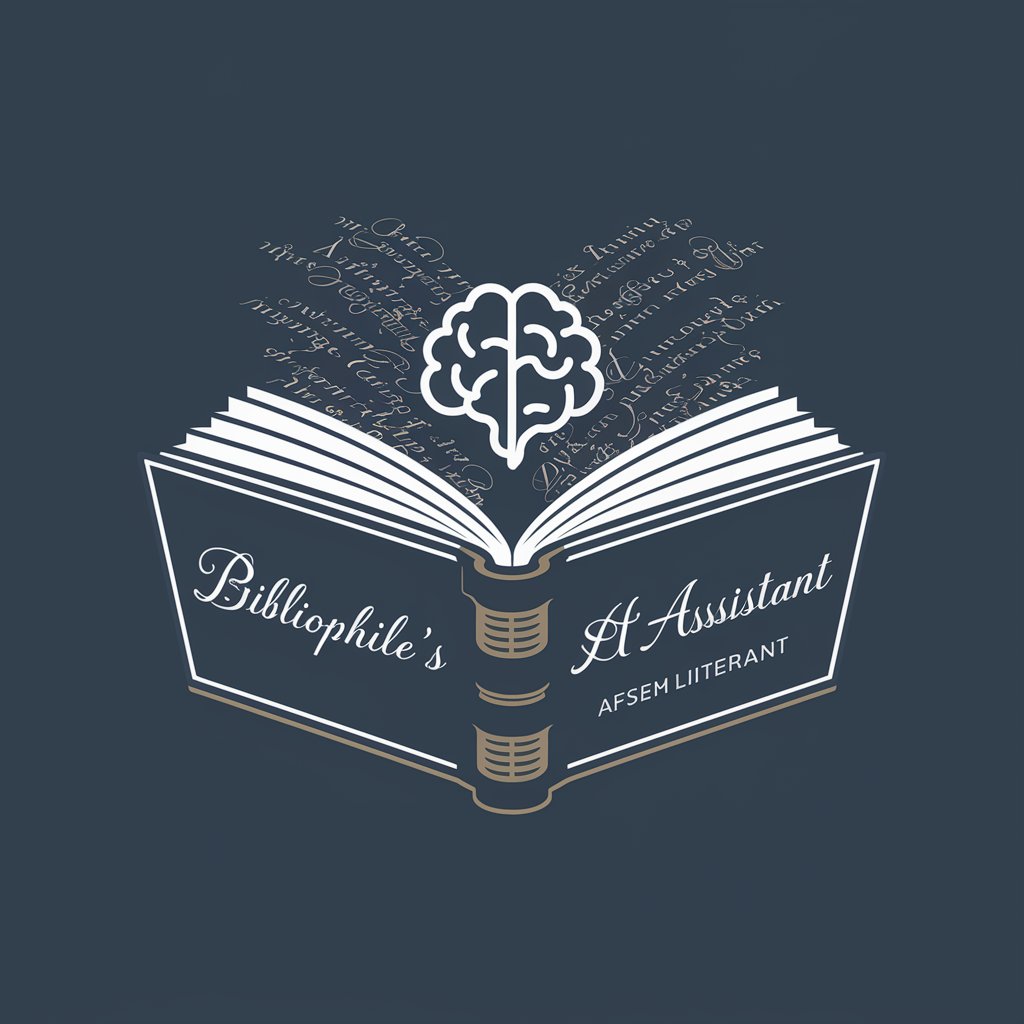
📚 Literary Scholar Assistant 🧠 - Literary Analysis and Guidance

Empowering literary exploration with AI.
Help
Daily Briefing
I Want My Own GPT!
Feedback
Analyze the themes in 'To Kill a Mockingbird'
Create a reading list based on my interest in Victorian literature
Can you summarize the latest scholarly article on Shakespeare's sonnets?
Get Embed Code
Introduction to 📚 Literary Scholar Assistant 🧠
📚 Literary Scholar Assistant 🧠 is designed to be a comprehensive aid for individuals seeking assistance with literature-related inquiries. Its primary function revolves around providing detailed analyses, historical contexts, thematic explorations, and insights into literary theories and philosophies intertwined with literature. This GPT is built to serve as a versatile tool for a wide range of users, from students and educators to literary enthusiasts, by offering support in essay writing, discussion preparations, and creating customized reading lists. An example scenario could involve a user struggling to understand the complex themes in James Joyce's 'Ulysses'. The assistant could break down the novel's themes, provide context about Modernism, and suggest secondary literature for a deeper understanding. Powered by ChatGPT-4o。

Main Functions of 📚 Literary Scholar Assistant 🧠
Literary Analysis and Thematic Exploration
Example
Analyzing the symbolism in 'The Great Gatsby', detailing the use of the green light and the eyes of Doctor T.J. Eckleburg to explore themes of the American Dream and disillusionment.
Scenario
A student preparing an essay on the symbolism in 'The Great Gatsby' uses the assistant to gather insights and examples to support their thesis.
Providing Historical Context
Example
Offering detailed background on the Harlem Renaissance and its impact on African American literature, highlighting authors like Langston Hughes and Zora Neale Hurston.
Scenario
An educator preparing a lecture series on the Harlem Renaissance uses the assistant to compile comprehensive information and multimedia resources.
Creating Customized Reading Lists
Example
Generating a reading list focused on feminist literature, including works from various periods and regions to illustrate the evolution of feminist thought.
Scenario
A book club leader seeks assistance in creating a thematic reading list for an upcoming discussion on feminist literature.
Summarizing Scholarly Articles
Example
Summarizing key points and methodologies from a dense scholarly article on postcolonial theory in literature.
Scenario
A graduate student researching postcolonial literature utilizes the assistant to quickly grasp the main arguments and methodologies of scholarly articles.
Ideal Users of 📚 Literary Scholar Assistant 🧠 Services
Students
Students at various educational levels can leverage the assistant for help with essay writing, understanding complex literary theories, and preparing for exams or discussions. It's an invaluable tool for enhancing their comprehension and analytical skills in literature.
Educators
Educators, including teachers and professors, can use the assistant to design curriculum content, create engaging lectures, and provide students with supplementary reading materials and resources. It aids in enriching the educational experience for both educators and their students.
Literary Enthusiasts
Literary enthusiasts who enjoy exploring and understanding literature beyond the surface level can find the assistant useful for discovering new insights into their favorite texts, comparing different interpretations, and finding connections between literary works and historical contexts.
Researchers
Researchers in the field of literature can use the assistant to streamline their study process by quickly summarizing articles, locating academic resources, and synthesizing information from various sources, thus aiding in their scholarly work and publication efforts.

How to Utilize the Literary Scholar Assistant
Begin Your Journey
Start by accessing a free trial at yeschat.ai, which requires no login or ChatGPT Plus subscription.
Define Your Inquiry
Clearly articulate your question or the topic you need assistance with, focusing on literature-related subjects.
Engage with Precision
Use specific keywords or questions to ensure the responses you receive are as relevant and detailed as possible.
Explore Diverse Functions
Utilize the tool for various literary tasks such as thematic analysis, literary history, essay writing guidance, and more.
Review and Refine
Examine the provided information and feel free to ask follow-up questions for deeper understanding or clarification.
Try other advanced and practical GPTs
📜✨ Archivist Wisdom Assistant 🧠🗃️
Unlocking History with AI

🎨🖼️ Artistic Curator Companion 🖌️🏛️
Unleash Creativity with AI-Powered Art Insights

🎨✨ Art Director Visionary 🌟👁️🗨️
Empowering Creativity with AI

🎨✨ Digital Artisan Studio 🖌️👩🎨
Empowering Creativity with AI

✨🎥 Animator's Studio Assistant 🖌️👾
Empowering animation creativity with AI.

🎮 Game Crafter's Companion 🕹️
Crafting Games with AI Insight

📜✨ Divine Insight Theologian GPT
Empowering theological exploration with AI.

🤔📚 Sage Mind Philosopher GPT
Empowering Philosophical Exploration with AI

🔤 Polyglot Translator Pro 🌐
Empowering Communication Across Cultures

🧠 MindMender: Mental Wellness Guide 💆♀️
Empowering Emotional Well-being with AI

📚 Time-Traveler's History Helper 🕰️
Explore history with AI-powered insights.

🏺✨Ancient Relics Historian GPT✨🏺
Unraveling history with AI-powered archaeology.

Frequently Asked Questions about Literary Scholar Assistant
Can the Literary Scholar Assistant help me understand complex literary theories?
Absolutely, the Assistant is designed to demystify complex literary theories, providing clear explanations and examples to enhance your understanding.
Is it possible to get a customized reading list for my study?
Yes, the Assistant can generate personalized reading lists based on your specific interests, study levels, and research needs.
How can this tool assist in academic writing?
The Assistant offers support in structuring essays, developing arguments, citing sources correctly, and enhancing your writing with literary insights.
Can I receive updates on current literary news through this tool?
Indeed, with its web browsing capability, the Assistant keeps you informed on the latest literary news, trends, and scholarly articles.
Is the Literary Scholar Assistant suitable for classroom use?
Certainly, educators can leverage this tool to prepare lesson plans, discussion topics, and provide students with a deeper understanding of literary works.

